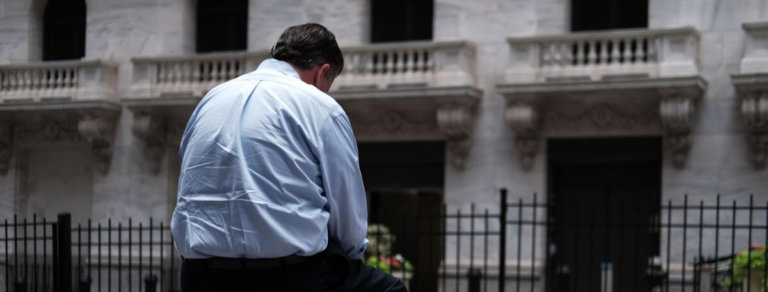
Applications to MBA 2019 programmes are declining for a second consecutive year, with even the highest-ranked business schools showing double-digit drops in percentage points.
Poets&Quants’ study of preliminary Class of 2021 profile data saw that among P&Q‘s top 25 programmes, Indiana University’s Kelley School of Business experienced the largest drop in applications at 30 percent. In terms of numbers, Yale University’s School of Management topped the list, losing nearly 591 applicants.
Writing in Forbes, P&Q founder John Byrne said: “If you ever wanted an MBA education from one of the world’s top business schools, this coming year may well be the best time ever for you to apply”.
“That’s because a recession is just around the corner and MBA applications have now declined at most of the best programmes for the second consecutive year and will likely fall again this year until the inevitable economic downturn kicks in.”

Following news of an economic slowdown in both Germany and China, concerns over a recession in America have sent stocks plummeting with the Dow down over 800 points on August 14, 2019. Source: Spencer Platt/AFP
At the UNC’s Kenan-Flagler Business School and Emory University’s Goizueta Business School, applications are down 25 percent each. Dartmouth College’s Tuck School of Business lost 22.5 percent of its application volume from its 2017-2018 total, the largest for any school with a top ten MBA program.
The Yale University’s School of Management’s and the University of Michigan lost 15.6 percent and 14 percent respectively.
As the US escalates its trade wars, talks of a 2020 US recession are rising among economists, investors and businesses. In this climate, the weighing of the pay-offs of an MBA degree becomes more important and granular.
Jeremy Shinewald, founder and CEO of MBA admissions consulting firms mbaMission told P&Q: “The opportunity cost of leaving a high-paying job for an increasingly expensive education means that the MBA decision has to be weighed carefully. For high earners with a lot of job security, staying where you are can make sense.”
BREAKING NEWS: Applications To @HarvardHBS Harvard Business School’s MBA Program Fall By 6.7% — Two consecutive declines cost HBS 1,123 MBA applicants https://t.co/0tcb1jg1Wj pic.twitter.com/8Pl3gLc4AJ
— Poets&Quants (@PoetsAndQuants) August 29, 2019
One area this plays out is in the application numbers to what is regarded as the two most elite institutions for this subject area: Harvard Business School and the Stanford Graduate School of Business.
In a tough market, applicants are likelier to apply to only these two schools or none at all. “We have definitely seen an ‘HBS, Stanford or Bust’ mentality emerge in the last decade and really accelerate as the economy has gone into overdrive in the last few years,” explains Shinewald.
MBA 2019: Many cons, many pros
Adding to the dilemma of MBA 2019 applicants is the trend of MBA graduates commanding salaries at an all-time high combined with the relative ease of getting into some of the most prestigious programmes in the world today. Not to forget generous scholarships are being offered too.
Recent findings from the Graduate Management Admission Council found US companies will offer new MBA hires in 2019 a record-breaking US$115,000 starting salary. This figure is higher than the median salary offered to direct-from-industry hires (US$75,000) and new bachelor’s degree hires (US$55,000). The report also found that positions with Asian Pacific and European companies will also command a salary premium.
The future looks financially rewarding and doors to top-ranked business schools have never been more open.
Acceptance rate at Yale is now 25 percent, a 44 percent jump from the 17.4 percent of its application cycle two years ago. Indiana’s acceptance rate is now twice of Yale, an unprecedented 50.1 percent. Meanwhile, Dartmouth’s is 34.5 percent this time around.







